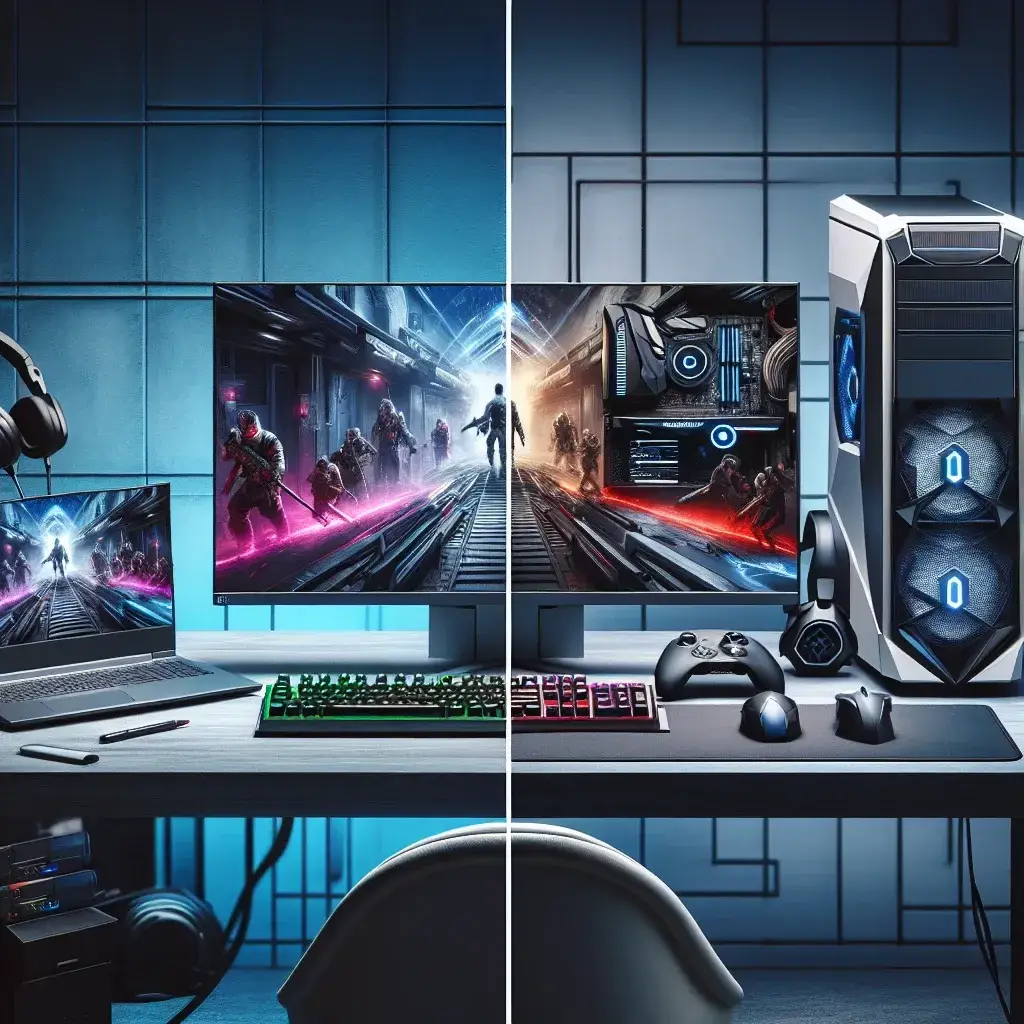When it comes to gaming, the choice between a gaming laptop and a desktop can be a daunting one. Each has its own set of advantages and disadvantages, and the decision ultimately comes down to your specific needs and preferences. In this comprehensive guide, we will delve into the key differences between gaming laptops and desktops, helping you make an informed decision.
Introduction to Gaming Laptops and Desktops
Gaming laptops and desktops are both designed to provide high-performance computing for gaming enthusiasts. However, they differ significantly in terms of portability, performance, and cost. Let’s break down these differences to understand which one might be the better fit for you.
Portability: The Advantage of Gaming Laptops
One of the most significant advantages of gaming laptops is their portability. Gaming laptops are designed to be lightweight and compact, making them ideal for gamers who need to take their setup on the go. Whether you’re traveling, attending gaming events, or simply moving from room to room, a gaming laptop offers the flexibility to game anywhere. However, this portability comes at a cost, which we will explore later in the article.
Performance: The Strength of Gaming Desktops
When it comes to raw performance, gaming desktops generally outshine gaming laptops. Desktops have more space for powerful components, better cooling systems, and can be easily upgraded to keep up with the latest technology. This makes them the preferred choice for hardcore gamers who demand the highest levels of performance. Gaming desktops can handle the most demanding games at the highest settings without breaking a sweat, providing a smoother and more immersive gaming experience.
Cost Considerations
Cost is a crucial factor to consider when choosing between a gaming laptop and a desktop. Generally, gaming laptops are more expensive than desktops with similar performance. This is because laptops require specialized components that are smaller and more energy-efficient, which increases their cost. On the other hand, desktops offer better value for money, as you can build a powerful system for less than the cost of a high-end gaming laptop. Additionally, the ability to upgrade components over time can extend the lifespan of a desktop, making it a more cost-effective investment in the long run.
Build Quality and Customization
Gaming desktops offer a higher degree of customization compared to laptops. You can choose and install specific components to tailor your system to your exact needs. This level of customization allows you to optimize your setup for performance, cooling, and aesthetics. Gaming laptops, while still offering some level of customization, are limited by their design and size constraints. However, the build quality of gaming laptops has improved significantly in recent years, with many models featuring high-quality materials and robust construction.
Cooling and Overclocking
Effective cooling is crucial for maintaining optimal performance in gaming systems. Gaming desktops generally have superior cooling systems, which can handle high temperatures more efficiently. This allows for better performance stability and the ability to overclock components for even more power. Gaming laptops, on the other hand, have limited space for cooling solutions, which can lead to thermal throttling in high-demand scenarios. However, modern gaming laptops have made significant improvements in cooling technology, making them more reliable than ever before.
Battery Life and Power Consumption
For gaming laptops, battery life is a significant consideration. While some high-end models offer decent battery life, most gaming laptops are designed for AC power and are best used while plugged in. This can limit their portability, especially for extended gaming sessions. Gaming desktops, on the other hand, do not have to worry about battery life, as they are always connected to a power source. However, they tend to consume more power, which can be a concern for those looking to reduce energy costs or minimize their environmental impact.
Graphics Performance and Display Quality
Graphics performance is a critical factor for gaming, and gaming desktops generally offer better performance in this area. Desktops can accommodate powerful graphics cards, which can handle the most demanding graphical tasks. Gaming laptops, while capable, are limited by the size and power constraints of mobile GPUs. However, the display quality of gaming laptops has improved significantly, with many models featuring high-resolution, high-refresh-rate displays that rival those of desktop monitors. This makes them a viable option for gamers who prioritize visual fidelity.
Storage and Expandability
Storage and expandability are important considerations for any gaming system. Gaming desktops offer a wide range of storage options, from multiple hard drives to high-speed NVMe SSDs. This allows for large game libraries and fast load times. Gaming laptops, while limited in terms of physical space, often feature SSDs for fast data access and can be equipped with external storage solutions to expand capacity. However, the expandability of laptops is generally more limited compared to desktops, which can be fully customized with additional components.
Peripherals and Connectivity
Gaming peripherals, such as keyboards, mice, and headsets, can significantly enhance your gaming experience. Gaming desktops offer a greater range of connectivity options, with multiple USB ports, HDMI outputs, and other ports for connecting peripherals. This makes it easy to set up a full gaming rig with all the necessary accessories. Gaming laptops, while still offering a variety of ports, are more limited in terms of expandability. However, they can be connected to external monitors and peripherals via docking stations, making them a versatile option for gamers who value portability.
Conclusion: Which is Right for You?
The choice between a gaming laptop and a desktop ultimately depends on your specific needs and preferences. If you prioritize portability and the ability to game on the go, a gaming laptop is the way to go. However, if you demand the highest levels of performance, customization, and expandability, a gaming desktop is the better choice. Consider your budget, gaming habits, and long-term goals to make the best decision for you.
Whether you choose a gaming laptop or a desktop, the key is to find a system that meets your needs and provides an enjoyable gaming experience. With the right setup, you can dive into your favorite games and enjoy the immersive worlds they offer.



